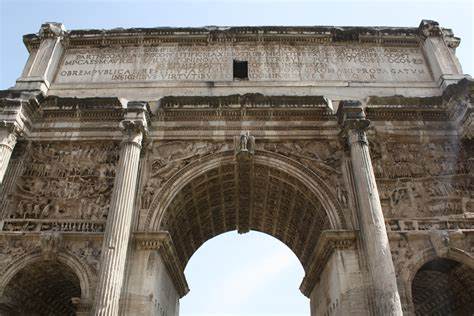
This pope was neither French nor Italian (at that time), but from the Kingdom of Naples. He was born about 1318 and given the name Bartolomeo Prignano. A very intelligent man, he was a monk, trained at Avignon. In 1364, he was named archbishop of Acerenza, Kingdom of Naples. And in 1377 he became archbishop of Bari.
He had a reputation for personal simplicity, frugality, and a knack for business. He had a penchant for learning. There were no family allies to cause his move into the papacy. But he did elevate four nephews to the cardinalate. However, his faults outnumbered his virtues. To quote one contemporary commentator, “He lacked Christian gentleness and charity. He was naturally arbitrary and extremely violent and imprudent, and when he came to deal with the burning ecclesiastical question of the day, that of reform, the consequences were disastrous.”
When the French pope, Gregory XI died on 27 March 1378, he was in Rome. The conclave thus occurred there. A Roman mob surrounded the building where the cardinals were. They wanted no more French popes! Fear of the mob led the cardinals to elect the relatively unknown Prignano unanimously. He took the name Urban VI. Although they thought he would be pliant, he disturbed them all by calling for many ecclesiastical reforms and behaving in an arrogant, angry manner.
Urban’s Papacy
The French cardinals soon left for Anagni, supposedly due to the heat in Rome. They invited Urban but he declined. On 9 August, they published a manifesto of grievances and declared the papal election invalid. Their letters to the Italian cardinals on 20 August declared the papal throne vacant. Moving from Anagni to Fondi, closer to the French king, the French cardinals elected Cardinal Robert of Geneva, militant and commander of the papal troops. He took the name Clement VII. He excommunicated Urban, thus starting the Western Schism. Plots were hatched to get rid of Urban, including offering land to one who could do it.
Some years earlier, Gregory XI had placed an interdict on Florence, which the city fathers ignored, selling church property to raise money for their war. Within months, Urban negotiated a treaty, lifting the interdict for a sum of 200,000 florins.
Meanwhile, Clement was chased out of Rome and was offered a home in Naples, Urban’s hometown. Queen Joanna was not happy that her old archbishop was now her superior authority. Urban quickly excommunicated her. He stayed for about a year then moved on to Avignon.
In 1381, Duke Charles of Croatia took over the rule of Naples, crowned by Urban in exchange for land. The new king imprisoned and then killed Queen Joanna. He fought her heir, Louis of Anjou, who was supported by Clement and members of the Visconti family. It did not take long for Urban to suspect King Charles of plotting against him. In January 1385, Urban arrested six cardinals and tortured them until one admitted Charles was guilty. Urban then excommunicated Charles and his wife while putting an interdict over Naples. Charles sent troops to besiege Rome and Nocera.
The siege lasted six months before two Neopolitans who did not support Charles managed to get Urban to Genoa and into ships lent by the Genoan doge. After escaping, several cardinals who had enough decided to take matters into their own hands. They proposed that Urban be put under the charge of one cardinal, due to his obstinacy and perceived incapacity. This essentially would terminate his active life as a pope. He had them seized, tortured and murdered.
Charles died in 1386, but the war continued as his son tried to win the throne. In August 1388, Urban moved to Perugia to be with his troops. To raise money for the war, he proclaimed that 1390 would be a Jubilee Year. On a ride, he fell from his mule and was injured. He returned to Rome to recover, which restored papal authority. Only a year later, on October 15, 1389, he died. To this day, some wonder if he died from his injuries or from poisoning.
He was such an unpopular pope that when the old St. Peter’s was being taken down, some wanted to take his remains out of the sarcophagus to make a water trough for horses. It was saved.

Recent Comments